Caryn
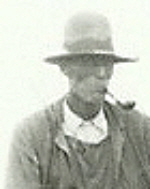 When I think about our organized military system, both during the years of the draft and now with our military being voluntary service, it occurs to me just how fortunate we, as a people, are to live where we do. There are so any evil leaders in countries who are not only enemies to the rest of the world, but in reality, enemies to their own people. In those countries, the military forces are not only not voluntary and not draft either, but rather they are forced into service, and often taken forcibly from their homes in the middle of the night, never to be seen again. Those taken are often children…even very young children, who are taken from their families and trained to be soldiers, or rather, trained killers. Their lives are viewed as unimportant. They are simply there to do the bidding of their evil government, and die doing it if necessary. They are expendable, because to replace them, the government simply goes out in the middle of the night and takes another child from another family by force. This was the position my great great grandfather, Stephan Beier found himself, his wife, Anna Maria Meier Beier, and their family in, one night in Russia. It was the reason that his family left Russia, and it was the reason my grandfather, Cornealius Byer was in the United States when he met my great great grandmother, Edna Fishburn in the Dakota Territory in the mid 1880’s.
When I think about our organized military system, both during the years of the draft and now with our military being voluntary service, it occurs to me just how fortunate we, as a people, are to live where we do. There are so any evil leaders in countries who are not only enemies to the rest of the world, but in reality, enemies to their own people. In those countries, the military forces are not only not voluntary and not draft either, but rather they are forced into service, and often taken forcibly from their homes in the middle of the night, never to be seen again. Those taken are often children…even very young children, who are taken from their families and trained to be soldiers, or rather, trained killers. Their lives are viewed as unimportant. They are simply there to do the bidding of their evil government, and die doing it if necessary. They are expendable, because to replace them, the government simply goes out in the middle of the night and takes another child from another family by force. This was the position my great great grandfather, Stephan Beier found himself, his wife, Anna Maria Meier Beier, and their family in, one night in Russia. It was the reason that his family left Russia, and it was the reason my grandfather, Cornealius Byer was in the United States when he met my great great grandmother, Edna Fishburn in the Dakota Territory in the mid 1880’s.
The family had been asleep and suddenly, they were awakened to the most horrifying event any family could ever imagine. Their son was taken at gun point, by soldiers. It was the Russian draft of the day. They did not care what his age was, nor did they care about any other qualifications, or the lack thereof. They needed more soldiers, and he had been chosen. I’m sure they had watched him for some time, along with watching many other young men his age. I don’t know how old he was at the time, but I do know that he was probably not out of school yet. What I do know is that my great great grandparents never saw their son again. My guess is that he probably lost his life in a battle somewhere within a year. The Russian leaders did not care about the soldiers…they were expendable…a dime a dozen, so their safety was unimportant. They were most likely sent into the worst battle zones, to fight the most likely to be lost battles. In that way, they government could keep their best officers and soldiers, the ones who had chosen to be there…if that was possible, safer from the worst battles. Or maybe, they put all the soldiers in the same harm’s way.
My great great grandparents were very distraught at the events of that night and they knew that they were not going to go through it again. The decision was made to secretly make their way out of Russia and go to the United States where their children could grow up safely, and if they were drafted into military service, they would be treated with dignity, and they would be able to stay in touch with their families. No parent is completely comfortable with their child going into military service, because if there is a war, their child will be in the middle of it. Nevertheless, they are proud of their child’s service…when it is done in the right way. To come into their home in the middle of the night, and forcibly take their child, knowing that they will never hear from that child again, is simply and horribly wrong. My great great grandparents decided that they were never going to go through it again. That is what made their decision to immigrate to the United States a move that was much less scary that the thought of staying in Russia. They never knew what happened to their son, and I’m certain that was something that stayed with them all their lives, but they knew they had done the right thing when they saw the rest of their family grow up and lead good lives in the United States.
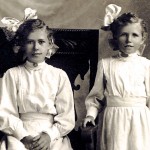 During the twenty six long years when my great grandmother, Henriette Albertine Hensel Schumacher was confined to a wheelchair with debilitating arthritis, her husband, my great grandfather took care of her with the help of his children…especially my great aunts, Bertha and Elsa who gave up the hope of marriage and a family in their young years, for the love of their parents and with and understanding of their need. Because my great grandmother was only fifty years old when she was struck with this disease, her youngest daughters, Bertha and Elsa were only 11 and 8 years old. Those girls would barely remember a time when they were not caregivers for their mother, and later for their father too. The time went by so quickly, and suddenly they looked back and the time for having a family was long past for them.
During the twenty six long years when my great grandmother, Henriette Albertine Hensel Schumacher was confined to a wheelchair with debilitating arthritis, her husband, my great grandfather took care of her with the help of his children…especially my great aunts, Bertha and Elsa who gave up the hope of marriage and a family in their young years, for the love of their parents and with and understanding of their need. Because my great grandmother was only fifty years old when she was struck with this disease, her youngest daughters, Bertha and Elsa were only 11 and 8 years old. Those girls would barely remember a time when they were not caregivers for their mother, and later for their father too. The time went by so quickly, and suddenly they looked back and the time for having a family was long past for them.
I don’t think that most people, or at least most of those who have never been a caregiver, have any idea what a monumental job it is to care for someone. It takes a willingness to give up your own desires, hobbies, activities…basically your life, to help someone else who is not in a position to help themselves. And, it isn’t always the person who needs the care that is the most helped, but rather their spouse, who has been trying to handle it themselves, and trying to figure out what has happened to their strength, their ability to handle everything in their 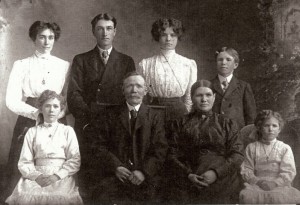 life, and how they could have come to a place where their only hope lies in the strength of their children, who still have the advantage of youth’s strength and energy. This was the place my great grandfather, Carl Schumacher found himself in, as the years passed and he came to the understanding that he would have to lean heavily on his two youngest daughters to keep things going.
life, and how they could have come to a place where their only hope lies in the strength of their children, who still have the advantage of youth’s strength and energy. This was the place my great grandfather, Carl Schumacher found himself in, as the years passed and he came to the understanding that he would have to lean heavily on his two youngest daughters to keep things going.
I have to wonder if great grandpa felt a lot of guilt over what his daughters gave up in life to help him. He was such a loving, caring person, who had always been able to take care of all the needs of his family, and he just could not do this alone. He simply had no choice but to rely on them for help. He was getting older, and he was getting tired. I’m sure Bertha and Elsa would have had it no other way. These were their parents, and they loved them. Still, they never forgot the day that their dad said, “What would I do without you girls?” I know from my own experiences as a caregiver, that while you don’t need to have the patient constantly saying “thank you”, there is something to be said for hearing that your hard work has positively effected their lives. They were both rewarded in later years with wonderful husbands, and even thought it was for a  short time they were blessed in that way too in the end.
short time they were blessed in that way too in the end.
In my years as a caregiver, I have had the opportunity a number of times to hear or be told that without my help, they couldn’t have stayed in their homes this long, and it does make you feel good about your work. Nevertheless, like my great aunts, I know I would do the work whether the praise came or not, because it truly is about making their lives better, and not about the praise I received. It’s all about the love I have for those I care for. I’m very proud of my great aunts, that they did what they needed to do to help their parents, and someday, I’ll have the chance to tell them that myself.
 On Sunday morning, our congregation was treated to my niece, Kellie’s debut on the piano. Kellie is an accomplished singer, and loves music ministry, but this was the first time she had ever played the piano in public. She told us that she loves playing the piano, but until that day, she played in her home…alone. Kellie is a little bit shy, when it comes to performing solos, but she really shouldn’t be, because she has the voice of an angel, and she plays the piano very well too. She told us that God has been leading her to play the piano as part of her music ministry, and I for one hope she will follow that leading and play more often, because it was beautiful. Her God given gifts are many, and her spirit is so beautiful. It is a wonderful mix that makes her the blessing she is.
On Sunday morning, our congregation was treated to my niece, Kellie’s debut on the piano. Kellie is an accomplished singer, and loves music ministry, but this was the first time she had ever played the piano in public. She told us that she loves playing the piano, but until that day, she played in her home…alone. Kellie is a little bit shy, when it comes to performing solos, but she really shouldn’t be, because she has the voice of an angel, and she plays the piano very well too. She told us that God has been leading her to play the piano as part of her music ministry, and I for one hope she will follow that leading and play more often, because it was beautiful. Her God given gifts are many, and her spirit is so beautiful. It is a wonderful mix that makes her the blessing she is.
As I listened to Kellie sing, I once again found myself totally amazed at the woman she has become. Sometimes, it is hard to imagine what a child will become, as you are watching them grow up. Then, when they are grown, and you see what an awesome individual they have become, and you are somehow surprised at what great things they are doing now. I really shouldn’t be, because Kellie has always been this same way, but when I hear her sing solos, and now play the piano too, the beauty of it just brings tears to my eyes. It doesn’t matter how many times I hear Kellie sing, because each time is like listening to an angel in a choir. She puts such feeling into the songs and you know that even though she did not write  them, they are just how she feels in her heart. It is God singing through her, and it is beautiful.
them, they are just how she feels in her heart. It is God singing through her, and it is beautiful.
Kellie has always been such a sweet girl, and as she has grown into womanhood, her faith has grow to amazing levels. I love the faith filled posts she puts on Facebook, because they are from her heart, yet they minister to so many people. It’s amazing that somehow the things she posts are just the things I needed to see. She is a blessing to anyone who knows her, and an asset to our church. As her aunt, I couldn’t be more proud of her if I tried. From her sweet spirit to her angelic voice, she is amazing. I love you Kellie!!

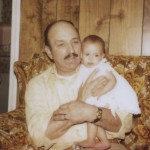 My niece, Liz has always been a sports fan…and a bit of a tomboy. The only pictures we really have of her in a dress were when she was very little. She always had strong ideas about what she wanted to do and where she wanted to go. Oh, she hadn’t chosen her career path when she was little, but at that time she had strong ideas about what sports she liked and what teams she liked. Sports was always something she shared with her grandpa, my dad, Allen Spencer. They were both Broncos fans, for football, and Yankees fans, for baseball. That love of those teams, and their love of talking about sports never changed. They could talk about it for hours. It was a special bond that was cherished by both of them.
My niece, Liz has always been a sports fan…and a bit of a tomboy. The only pictures we really have of her in a dress were when she was very little. She always had strong ideas about what she wanted to do and where she wanted to go. Oh, she hadn’t chosen her career path when she was little, but at that time she had strong ideas about what sports she liked and what teams she liked. Sports was always something she shared with her grandpa, my dad, Allen Spencer. They were both Broncos fans, for football, and Yankees fans, for baseball. That love of those teams, and their love of talking about sports never changed. They could talk about it for hours. It was a special bond that was cherished by both of them.
As Liz grew, she started thinking about what career she wanted to pursue, and after considering several things, she settled on teaching. It was the perfect choice, because Liz really is a gifted teacher. It isn’t every teacher, who can have a friendship with her students, that lasts well beyond graduation. They know that she is a friend they can trust and respect. She works with many of her students closely, because she is the journalism teacher. She and her students publish the school newspaper, the Kelly Kall, and she also heads up the annual staff. She is also the photographer for the paper and the annual. With all that, Liz gets to know many of the students and the school organizations. It makes her one of the well known teachers too.
One thing that doesn’t make her stand out as a teacher, however, is her height. Very few teachers, or people for that matter are as short as Liz. Unfortunately for Liz, she comes from a family of short people, so there wasn’t much chance that she would become a tall person. When she began her teaching career, most of her students thought she was a new student. 
 I’m sure that is something she will deal with for a while, because she can still pass for a student. I have looked at some of the pictures of Liz with special students, and she is always the shorter one, but in last year’s graduation, Liz was finally able to see eye to eye with one of her students. Seriously…how cool is that? Maybe she will look like the teacher someday after all. Today is Liz’s birthday. Happy birthday Liz!! Have a great day!! We love you!!
I’m sure that is something she will deal with for a while, because she can still pass for a student. I have looked at some of the pictures of Liz with special students, and she is always the shorter one, but in last year’s graduation, Liz was finally able to see eye to eye with one of her students. Seriously…how cool is that? Maybe she will look like the teacher someday after all. Today is Liz’s birthday. Happy birthday Liz!! Have a great day!! We love you!!
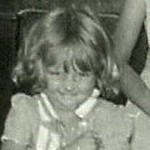 So often we think that toddlers don’t have the ability to remember things that happened when they were so very small, but the mind is an incredible thing. If our toddler’s mind has deemed something as important enough to remember, we will remember it for the rest of our lives. Yesterday, I had the pleasure of sitting with my mom, Aunt Sandy, and my sister, Cheryl at my mom’s house, while we scanned some pictures, and talked about family history. We talked of many different family stories, but one that stood out in my mind was Aunt Sandy’s account of the entrance of my grandparents’ first grandchild, my cousin, Susie. For any grandparent, the moment when you actually become a grandparent for the first time is amazing…a moment you will never forget. But, what of the small children? Most of us assume that there really won’t be small children to consider when it is the first grandchild, but sometimes, the aunts and uncles are barely toddlers themselves. Such was the case with Aunt Sandy when Susie was born.
So often we think that toddlers don’t have the ability to remember things that happened when they were so very small, but the mind is an incredible thing. If our toddler’s mind has deemed something as important enough to remember, we will remember it for the rest of our lives. Yesterday, I had the pleasure of sitting with my mom, Aunt Sandy, and my sister, Cheryl at my mom’s house, while we scanned some pictures, and talked about family history. We talked of many different family stories, but one that stood out in my mind was Aunt Sandy’s account of the entrance of my grandparents’ first grandchild, my cousin, Susie. For any grandparent, the moment when you actually become a grandparent for the first time is amazing…a moment you will never forget. But, what of the small children? Most of us assume that there really won’t be small children to consider when it is the first grandchild, but sometimes, the aunts and uncles are barely toddlers themselves. Such was the case with Aunt Sandy when Susie was born.
When she became an aunt, my Aunt Sandy was just three years old…too young to really remember much about it, right? Wrong! This would be an event that Aunt Sandy’s three year old mind knew was a life changing event. She was never going to be the same after that November day…she wasn’t just a little girl now…she was an aunt. I can’t say for sure that Aunt Sandy knew what being and aunt really meant, or that she understood that there was a new baby in the family now…at least, not at first. Then came the moment when the baby was to be brought over to meet her family.
The house was filled with all the family members. That wasn’t such an unusual thing for my grandparents’ home, so it probably didn’t seem like anything new to Aunt Sandy. Then my Aunt Evelyn and Uncle George brought the baby into the house. Everyone gathered around the new little family. There were the usual ooo’s and ahh’s, as everyone vied for a position where they could get a good look at the baby. But, standing in the back of the crowd, momentarily forgotten in all the excitement, stood my Aunt Sandy, her eyes as big as silver dollars, as she took in this incredible scene. Her little three year old toddler mind was trying to figure out what all this meant, because it didn’t take an adult to know that everything in her world had changed…she knew it, she just didn’t really know how much it had changed.
Feeling maybe just a little bit nervous about all this activity, Aunt Sandy went up to her mom, and put her little hand out and touched her mom. Grandma turned around, perhaps realizing for the first time that the prior youngest person in the family had been momentarily forgotten in all the excitement. As she looked down at her youngest daughter, her youngest child, she knew just what was needed. She said to Aunt Sandy, “Do you want to see the baby?” Aunt Sandy nodded, Grandma picked her up, and she was able to get her first look at the baby that 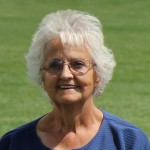 had changed her life forever…the baby that had made her an aunt. She now knew that something amazing had happened in her family, and this was a moment she would remember for the rest of her life.
had changed her life forever…the baby that had made her an aunt. She now knew that something amazing had happened in her family, and this was a moment she would remember for the rest of her life.
As we talked about the way that such an early memory could stay with a person, I could see on Aunt Sandy’s face, that the picture of that day was very clearly imprinted in her mind. It was almost as if she was that three year old toddler again, standing in back of the crowd of family members wondering what was going on. That earliest memory had so completely imprinted itself on her mind that she could still see it as if she was back there again.
 Bob and I went to the Wyoming Cavalry indoor football game last night, and there are media events at different times in the game, with things like a three person in one triple bag sack race, and kids on a bouncy ball. They asked the fans if these things took them back a few years, and that started me thinking about the things I did as a kid. One thing that came to mind was the skateboard. It was my generation who had the privilege of riding the skateboard first, and while we were first, we certainly didn’t take that ride to the skill level of the subsequent generations. I was thrilled when I could stand on the thing and ride. The thought of taking it on a railing, or up a ramp, or flipping it in the air and landing back on it, never crossed my mind…or the minds of the rest of my generation for that matter.
Bob and I went to the Wyoming Cavalry indoor football game last night, and there are media events at different times in the game, with things like a three person in one triple bag sack race, and kids on a bouncy ball. They asked the fans if these things took them back a few years, and that started me thinking about the things I did as a kid. One thing that came to mind was the skateboard. It was my generation who had the privilege of riding the skateboard first, and while we were first, we certainly didn’t take that ride to the skill level of the subsequent generations. I was thrilled when I could stand on the thing and ride. The thought of taking it on a railing, or up a ramp, or flipping it in the air and landing back on it, never crossed my mind…or the minds of the rest of my generation for that matter.
Nevertheless, at some point in time, some kid who thought that the old style tame  skateboarding was way too tame for them, decided to step it up a bit, and something new and exciting was created from a fad that probably would have died a miserably quick death otherwise. Soon the kids were doing all kinds of tricks, and spending hours each day trying to perfect something that would let them outshine their friends. Of course, there were the normal, and not so normal injuries that went along with such endeavors, but that didn’t stop the kids from working hard to create the next big thing on a skateboard. They flew along curbs and railings, flipped their boards several times in the air and managed to land right back on the board. They held competitions…just for fun, at first, but these days they compete for money, titles, trophies. Every skateboarder wants to be dubbed the King of Skateboarding. They even came out with video games on skateboarding, which my grandsons absolutely loved.
skateboarding was way too tame for them, decided to step it up a bit, and something new and exciting was created from a fad that probably would have died a miserably quick death otherwise. Soon the kids were doing all kinds of tricks, and spending hours each day trying to perfect something that would let them outshine their friends. Of course, there were the normal, and not so normal injuries that went along with such endeavors, but that didn’t stop the kids from working hard to create the next big thing on a skateboard. They flew along curbs and railings, flipped their boards several times in the air and managed to land right back on the board. They held competitions…just for fun, at first, but these days they compete for money, titles, trophies. Every skateboarder wants to be dubbed the King of Skateboarding. They even came out with video games on skateboarding, which my grandsons absolutely loved.
Even the boards have changed from the clunky ones we had when I was a kid, that were  really just skates with a board attached, and had very little maneuverability, to one that had just one wheel on each end, and twisted in the middle, to the long board that my grandsons liked, which probably mimics a surf board without the water, to many more that I have no clue about, much less how they work. I suppose that as long as we have kids who are willing to push the envelope in the world of skateboarding, we will have manufacturers who will make the designs they need to accomplish their unique skill set, thereby continuing to take skateboarding to the next level and beyond. While I enjoy watching the amazing tricks these people can perform, I think I will just stay on my own two feet, because at least that way, I won’t kill myself.
really just skates with a board attached, and had very little maneuverability, to one that had just one wheel on each end, and twisted in the middle, to the long board that my grandsons liked, which probably mimics a surf board without the water, to many more that I have no clue about, much less how they work. I suppose that as long as we have kids who are willing to push the envelope in the world of skateboarding, we will have manufacturers who will make the designs they need to accomplish their unique skill set, thereby continuing to take skateboarding to the next level and beyond. While I enjoy watching the amazing tricks these people can perform, I think I will just stay on my own two feet, because at least that way, I won’t kill myself.
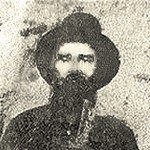 Every family has it strange characters. For mine it would have to be my great great grandfather, David Martin Pattan. Some might have called him eccentric, or even crazy , but no one really knows exactly why he did the things he did…or, as is the case for some parts of his life, why he did the things he did…over and again.
Every family has it strange characters. For mine it would have to be my great great grandfather, David Martin Pattan. Some might have called him eccentric, or even crazy , but no one really knows exactly why he did the things he did…or, as is the case for some parts of his life, why he did the things he did…over and again.
After David’s parents died on Ohio, which is where David was born in about 1828, he moved to Illinois and settled in Knox County near Gibson. He met and married my great great grandmother, Elizabeth Ellen Shuck on December 25, 1856 in Knoxville, Illinois. Together they had six sons and four daughters. As I look at the marriage certificate, I looks like his last name was spelled Patten and Elizabeth’s was spelled Shuck. We have always spelled his Pattan and hers Schuck.
During the Civil War, he enlisted in Company H 102nd Illinois Volunteer Infantry on August 8, 1862, a little less than a year after his third son, Joseph was born. He was discharged on October 1, 1863, just 3 days before Joseph’s third birthday. At his discharge his had a disease of the larynx and bronchia that caused him not to be able to speak louder that a whisper for two months. He then enlisted in Company D36 Illinois Volunteer Infantry on September 27, 1864. It is unknown if he just forgot that he had already served, or if he just felt that his services were needed again. He was shot in the right arm, just above the elbow, in the Battle of Lookout Mountain in Tennessee on November 29, 1864. He spent the next five weeks in a hospital in Cincinnati, Ohio. Upon his discharge, he was sent back to his unit. He was discharged on May 20, 1865 with 1/2 disability.
After David’s discharges from his times in the infantry, he and Elizabeth had their remaining seven children. At some point after the birth of their twins in 1876, David went to town and didn’t come back. He was gone for seventeen years. Then, one day in town, David’s son George, my grandfather, saw him in town. The sheriff was about to arrest him, when George offered to take him home. I guess he must have been drinking or causing some other such mischief that didn’t necessarily warrant jail time. Once home, they found out that he had been married to another woman and they had a son and a daughter, both of whom were named the same names as a son and daughter with Elizabeth. This leads me to wonder if something had happened seventeen years earlier that caused him not to remember the first marriage. That family died in a flash flood, so maybe that was why he was back. I have heard that he was married one more time…again without the benefit of a divorce, and when the third wife tried to collect his pension, she was denied because they weren’t legally married. No children were born to that union.
I don’t know if my great great grandfather was just a man who liked to marry different women, or if there was truly something mentally wrong with him. I have found out that his name was spelled every way you can possibly spell Pattan…Patton, Patten…and that for a time at least, he went by the alias, David Martin Berry. Berry was his mother’s maiden name, so I 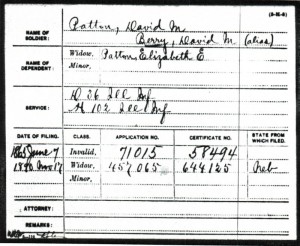 guess that worked. I have to wonder if he used the other names so that he could keep the wives straight…again, if he mentally knew that he was married. The research on his marriages is complicated due to these differences in names, but I have to wonder if the third wife, at least, went by berry, because that name is listed on the pension request, probably to avoid paying out twice. Whatever the reasons were for his double military service, and his three marriages, my great great grandmother took him back, and in the end cared for him until his dying day. They are buried together in Little York Cemetery in Warren Illinois.
guess that worked. I have to wonder if he used the other names so that he could keep the wives straight…again, if he mentally knew that he was married. The research on his marriages is complicated due to these differences in names, but I have to wonder if the third wife, at least, went by berry, because that name is listed on the pension request, probably to avoid paying out twice. Whatever the reasons were for his double military service, and his three marriages, my great great grandmother took him back, and in the end cared for him until his dying day. They are buried together in Little York Cemetery in Warren Illinois.
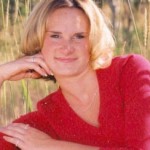 Not every family member comes into the family by birth or directly by marriage, sometimes they come into a family by way of a blended family. That is the case with my niece, Amanda. She is the daughter of my sister Caryl’s second husband, Mike Reed. Amanda was a blond 16 year old girl just starting into the pre-adult years. She is the same age as my niece, Andrea, who is Caryl’s daughter, so they would now have two 16 year old girls in the household. All I can say to that is…ouch!! All of the emotions of two 16 year old girls would be more than anyone should have to get used to all of a sudden, but that was the situation Caryl and Mike found themselves in, when they combined their two families to make one.
Not every family member comes into the family by birth or directly by marriage, sometimes they come into a family by way of a blended family. That is the case with my niece, Amanda. She is the daughter of my sister Caryl’s second husband, Mike Reed. Amanda was a blond 16 year old girl just starting into the pre-adult years. She is the same age as my niece, Andrea, who is Caryl’s daughter, so they would now have two 16 year old girls in the household. All I can say to that is…ouch!! All of the emotions of two 16 year old girls would be more than anyone should have to get used to all of a sudden, but that was the situation Caryl and Mike found themselves in, when they combined their two families to make one.
Since my daughters are 11 months apart, I knew what it was going to be like for them. For one month of every year Corrie and Amy are the same age too. The difference is that I was able to move into the horrible teens slowly, and easing into the changes the girls would go through. I can’t imagine doing those years without that prior preparation. The girls got along pretty well…most of the time, and the first year didn’t seem to be too bad. I knew that if they could live through that first year, the rest would be progressively easier, and they were.
Amanda is still the same blond girl, but now, she has a little girl of her own. She is a wonderful mother, who, along with her significant other, Sean has raised a wonderful little girl named Jaydn, who is just as sweet as she can be. We don’t get to see them as much as we would 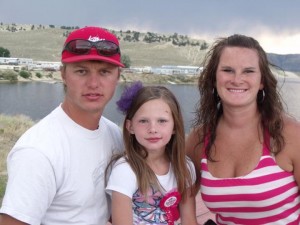 like, because they live in Rawlins, but when we do see them, it is always a pleasure.
like, because they live in Rawlins, but when we do see them, it is always a pleasure.
You never really know how loved ones will come into your life. As circumstances change, so do the people in your life, and while not every blended family works out so well, Caryl and Mike’s did, and we have been very blessed because it did. We have new family members that we would not have had any other way. I feel very blessed to have Amanda as a part of our family, as well as Sean, Jaydn, and of course, Mike too. Today is Amanda’s birthday. Happy birthday Amanda!! Have a great day!! We love you!!
 As Spring approached each year, my Great Aunt Bertha Schumacher seemed to blossom right along with it. Her favorite flower was the Crocus, and while I can agree that they are beautiful, the fact that they last for such a short time, makes them a flower that I hadn’t really considered as a favorite, or even given much thought to once they had faded away for another year. Nevertheless, for Bertha, Spring was a time to feel alive again. The long winter was finally over, and she and her sister, Elsa reveled in the beauty of the flowers, as they drove their horse and buggy to school in the mornings. Bertha called the drive to school, one of her wildest joys, because the Crocuses were so abundant in the fields along the road. The view must have been amazing!
As Spring approached each year, my Great Aunt Bertha Schumacher seemed to blossom right along with it. Her favorite flower was the Crocus, and while I can agree that they are beautiful, the fact that they last for such a short time, makes them a flower that I hadn’t really considered as a favorite, or even given much thought to once they had faded away for another year. Nevertheless, for Bertha, Spring was a time to feel alive again. The long winter was finally over, and she and her sister, Elsa reveled in the beauty of the flowers, as they drove their horse and buggy to school in the mornings. Bertha called the drive to school, one of her wildest joys, because the Crocuses were so abundant in the fields along the road. The view must have been amazing!
The Crocuses she would see around Boulder, Colorado later in life grew much taller in the mountains there, but on the prairie, they grew in sheets, and they were magnificent. I can only imagine how amazing they must have looked along the road as the girls went to school. It would be enough to give you a horrible case of Spring Fever when you got to school, and had to try to apply yourself to your studies. The only time I can remember seeing flowers that dominated a field was when my sisters and I visited our sister Caryl in Bremerton, Washington and we took a drive up to Bellingham for the Tulip Festival. That was magnificent, so I can somewhat relate to Bertha’s feelings on so many flowers in one place.
Another of Bertha’s favorite flowers was the wild Tiger Lily, which grew in “unbelievable abundance” in the lake country near their home in the Fargo, North Dakota area. The wild Tiger Lilies grew only where the ground had not been “turned by a plow” and in the 27 years the family lived there, they saw them completely disappear. The family occasionally saw the wild Tiger Lilies when they were driving home from Minnesota. They were always so tired, and then they would come up over a hill, and there would be a whole field of them., They got so excited. They stopped to pick some of them, and then go to enjoy them for days.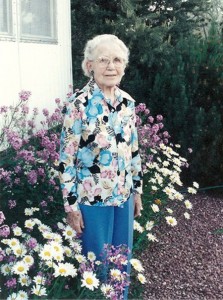
The only spring plant that Bertha thought was a worthy rival to the crocuses and lilies, was her mother’s strawberry plants. the strawberries were planted at the edge of the garden so they could be easily picked, and often the early ones were picked and eaten long before the main harvest. The strawberries grew so large that they could not hide among the leaves and were easy to see. Of course, as with any garden, there was weeding to do, but nobody seemed to mind, because as they worked, they were reminded of the luscious harvest to come. Great Aunt Bertha, and her sister, Elsa loved to garden in her later years too, and tried to transplant some of the wild Tiger Lilies and the wild Crocuses into their own garden in Boulder, but they just wouldn’t grow. I guess that some flowers will only grow where they choose, and not where we wish they would…unfortunately.
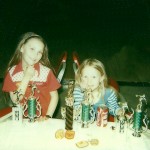 At bowling last night, I was reminded of the early years of bowling for us and our kids. Bob and I started bowling when our girls, Corrie and Amy were three and two years old. Since we enjoyed bowling so much, we knew they would too, so we started them on a bowling league at Sunrise Lanes when they were six and five years old. The league was short on coaches, so I took the class to become a coach, and I became the coach of the younger children on the league. After a couple of years, the league at Sunrise Lanes dwindled down to just a few, and the league at Eagle Bowl needed bowlers and a coach, so we made the move to Eagle Bowl. Little did we know that the move to Eagle Bowl would change so many things, not only for us and our girls, but really for my whole family. Connections were made that we would cherish for the rest of our lives.
At bowling last night, I was reminded of the early years of bowling for us and our kids. Bob and I started bowling when our girls, Corrie and Amy were three and two years old. Since we enjoyed bowling so much, we knew they would too, so we started them on a bowling league at Sunrise Lanes when they were six and five years old. The league was short on coaches, so I took the class to become a coach, and I became the coach of the younger children on the league. After a couple of years, the league at Sunrise Lanes dwindled down to just a few, and the league at Eagle Bowl needed bowlers and a coach, so we made the move to Eagle Bowl. Little did we know that the move to Eagle Bowl would change so many things, not only for us and our girls, but really for my whole family. Connections were made that we would cherish for the rest of our lives.
As it turned out, one team that really needed bowlers was two little girls…sisters, named Jaime and Jackie Morton. They were about the same age as Corrie and Amy, and they got along well. The four girls bowled together for a number of years, and then my nephew, Barry Schulenberg decided to bowl on the league. I told Donna, Jaime and Jackie’s mom, that Corrie and Amy were going to bowl with their cousins that year. She seemed disappointed, but asked if I had a team for Jaime and Jackie. I told her, “Yes, they are bowling with Corrie and Amy.” Confused now, she said, “I thought they were going to bowl with their cousins.” When I told her they were, she was completely baffled, and with good reason.
I finally had to break down and tell her something about her daughters that she didn’t know. Seriously, how often can someone else tell you something about your young daughters that you didn’t know. Nevertheless, I was able to do just that, because when I had mentioned Ted  and Donna Morton to my mom, she was surprised, and she told me who they were. I explained to Donna that Corrie and Amy were Jaime and Jackie’s cousins. She was shocked, until I explained that her husband, Ted’s grandmother Gladys Pattan Byer Cooper, was my grandmother, Harriet Pattan Byer’s sister. Not only that, but Ted’s grandfather, Theodore Byer was my grandfather, George Byer’s brother, making us double second cousins, because my grandmother and her sister had married my grandfather and his brother. That made our girls double third cousins. So while the girls did bowl with my nephew, Barry, who was their cousin, that year, we all found out that they had been bowling with cousins all along.
and Donna Morton to my mom, she was surprised, and she told me who they were. I explained to Donna that Corrie and Amy were Jaime and Jackie’s cousins. She was shocked, until I explained that her husband, Ted’s grandmother Gladys Pattan Byer Cooper, was my grandmother, Harriet Pattan Byer’s sister. Not only that, but Ted’s grandfather, Theodore Byer was my grandfather, George Byer’s brother, making us double second cousins, because my grandmother and her sister had married my grandfather and his brother. That made our girls double third cousins. So while the girls did bowl with my nephew, Barry, who was their cousin, that year, we all found out that they had been bowling with cousins all along.

